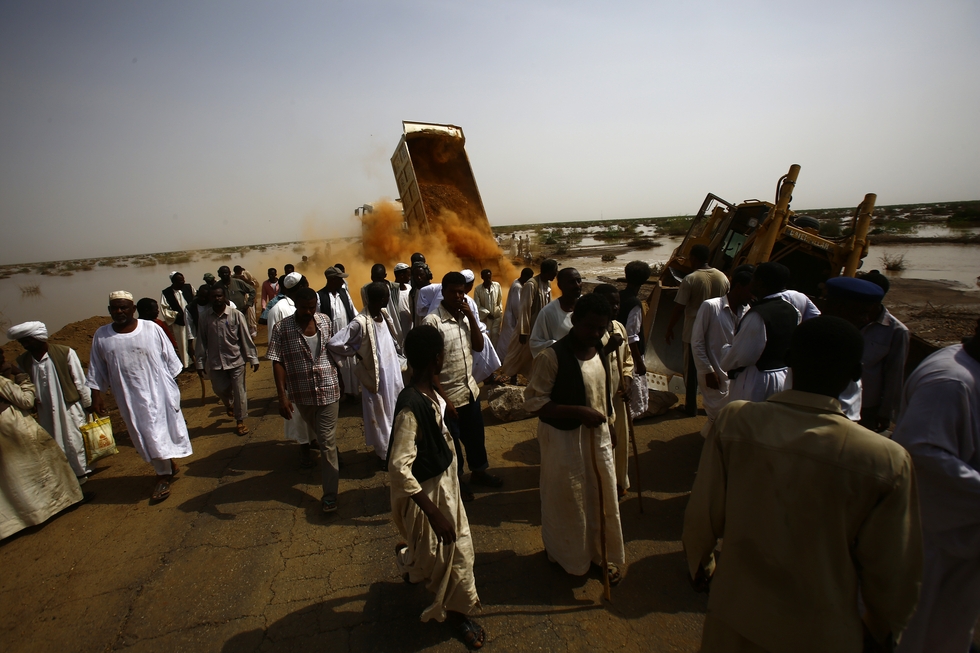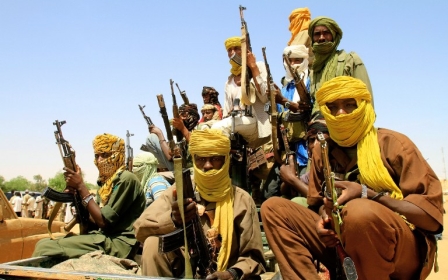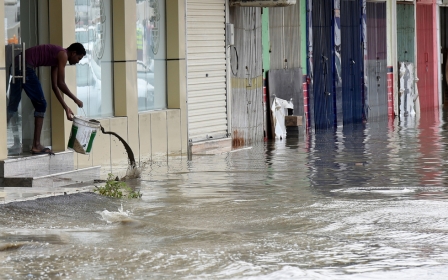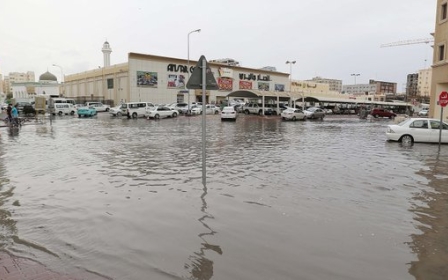Sudan floods leave scores dead as UN warns of aid crisis

The United Nations says it is facing a shortfall of hundreds of millions of dollars for Sudan's 2016 aid needs as the country battles flooding that has killed more than 100 people since July.
Entire villages have been submerged in torrential downpours that began in July, the UN said in a report released on Tuesday, and more than 160,000 people have so far been forced from their homes.
More than 14,000 homes have been destroyed in the flooding, with the impoverished eastern province of Kassala among the worst affected after the river Garsh burst its banks on Sunday.
Many residents have been forced to drink dirty water, which could lead to the spread of water-borne diseases.
"We had no time. We simply fled, taking our children when our village was flooded in the night two weeks ago," Taha Mahmoud, chief of Makli village in Kassala, told AFP.
"We lost all our food, belongings and livestock," Mahmoud said. "We're living in miserable conditions in makeshift huts that won't withstand heavy rains. We are eating just one meal a day. Children are falling sick, and doctors are miles away."
With much of the country racked by what locals have described as the worst flooding in nearly three decades, the UN said on Wednesday that it is hundreds of millions of dollars short to meet funding targets for humanitarian work in Sudan.
The UN's 2016 humanitarian response plan for Sudan aims to help up to 4.6 million people, including tens of thousands of South Sudanese refugees who fled to Sudan to escape violence and food shortages.
Of the $952m needed, UN aid agencies have so far managed to raise only $242.6m.
"We still are very, very low in terms of the total funding requirement," Marta Ruedas, the UN humanitarian coordinator for Sudan said at a news conference ahead of World Humanitarian Day on 19 August.
"There is no doubt that this year we are in a worse situation with regard to the level of funding."
The UN and its aid agencies raised $604.3m in 2015 for Sudan after a global appeal for $1.04bn.
While urging the international community to step up its contributions for Sudan, Ruedas said the shortfall could impact the number of people targeted for assistance.
"If we are not able to count on the support of any and all donors to make up that funding, we will have to review our forecast in terms of who we are able to assist," she said.
Officials say Sudan's main humanitarian needs result from fresh displacements from conflicts that affect food security.
Food insecurity and the raging conflict in South Sudan has also pushed refugees into Sudan seeking protection and assistance.
The bulk of the funds in 2016 are aimed at meeting the humanitarian needs of people in war-torn Darfur – a region of the size of France where tens of thousands of people have been killed.
Violence erupted there in 2003 when ethnic minority rebels rose up against President Omar al-Bashir, accusing his Arab-dominated government of marginalising the region.
At least 300,000 people have been killed in the conflict and another 2.5 million have fled their homes, the UN says.
The International Criminal Court issued arrest warrants for Bashir in 2009 and 2010 for war crimes, crimes against humanity and genocide over the Darfur conflict.
Middle East Eye propose une couverture et une analyse indépendantes et incomparables du Moyen-Orient, de l’Afrique du Nord et d’autres régions du monde. Pour en savoir plus sur la reprise de ce contenu et les frais qui s’appliquent, veuillez remplir ce formulaire [en anglais]. Pour en savoir plus sur MEE, cliquez ici [en anglais].




